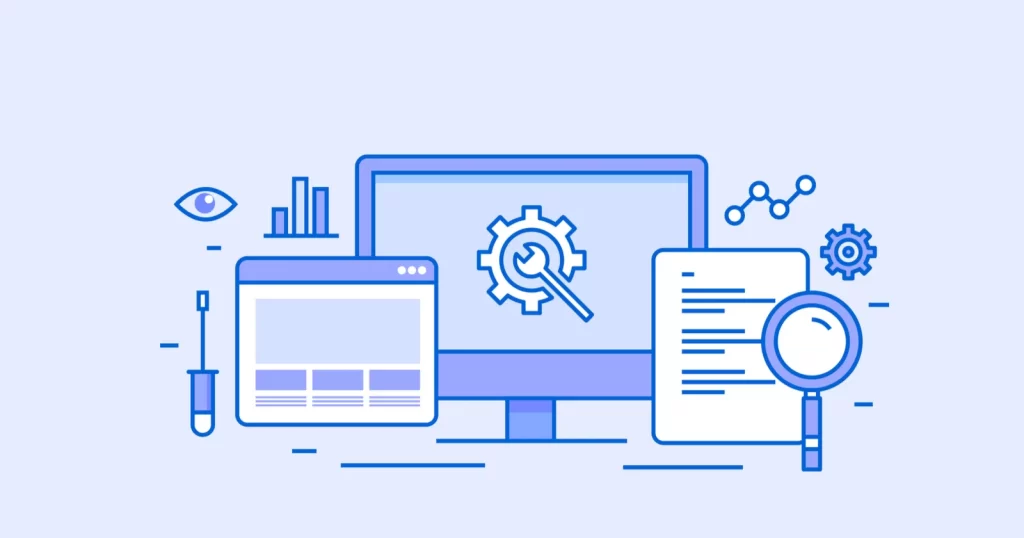We live in a digital age, let’s face it. Our professional, personal, and financial lives have all begun to migrate towards the internet, mobile computers, and electronic media.
Unfortunately, as a result of this worldwide phenomenon, we are now more vulnerable than ever before to harmful assaults, invasions of privacy, fraud, and other such annoyances.
That is why cybersecurity is such an important component of a safe and well-organized digital world. Hackers, cyber crooks, and other fraudsters are kept at bay by cybersecurity. But how well do you know cybersecurity?
With this post, I’ll try to share and improve your cybersecurity awareness. A practical guide for business owners looking to understand what cybersecurity is, sharpen their knowledge over why cybersecurity is important, what types of dangers are out there, the greatest security methods, and what you can do personally to be more secure when using the internet.
What is Cyber Security?
Cybersecurity refers to techniques and processes that ensure the safety of the information you store digitally. This information may include sensitive business data in a database on the cloud or on networked hard drives. It may also relate to data stored on portable devices, like smartphones or tablets.
People tend to think of cybersecurity in relation to sensitive customer or financial data. These certainly form much of the central focus of cybersecurity. However, the term also encompasses softer data targets, like policy documents, reports, and personal data.
Why Cyber Security is needed?

According to recent statistics, cybercrime has cost the world $2 trillion in 2021. But it isn’t just large companies and organizations that are affected. Phishing scams, ransomware assaults, identity theft, data breaches, and financial losses are all common occurrences for everyday consumers.
According to a Netscout report, hacking an internet-connected gadget, such as your smartphone, wristwatch, onboard automotive computer, smart television, and home management systems, takes just five minutes.
Confidentiality
Confidentiality is likely an idea with which you’re already at least broadly familiar. The term refers to the privacy of your data. When your information is confidential, it isn’t disclosed or accessible by any unauthorized individual or organization. Confidential data is private data. You control who sees it.
Some examples of how confidentiality can be assured include:
- Two-factor authentication: A process of entering both a master password and an additional access key to access private data
- Data classification: Setting up access permissions by record type to ensure that sensitive data is only available to authorized people, usually within a company
Integrity
Whereas confidentiality refers to data access, the idea of integrity is more concerned with the accuracy of that data. Data integrity means you have an assurance that your data can’t be altered, augmented, or deleted — either by an unauthorized third-party or as a result of hardware or software failure.
Here are some concrete examples of how data integrity can be protected:
- Cloud backup solutions: Cloud-based platforms that automatically store backups of file data, allowing users to restore files if they are erased or become corrupted.
- File monitoring software: Software that monitors critical files to detect any attempted changes, both to their content and their file location. Any such modifications may be password protected or only be available to authorized individuals.
Availability
The concept of availability refers to a person or organization’s ability to access their data as needed. While some might assume availability is a less critical component of security, our continued migration to online data storage has made businesses and individuals vulnerable to direct attacks on data availability. This is known as a distributed denial-of-service (DoS) attack.
Different Forms of Cybersecurity Threats
Hackers have a full kit of tactics at their disposal when it comes to breaking into your system. Consider the following example:
1. Phishing Attacks
Phishing is a method of getting people to give hackers access to personal information by sending them bogus emails and text messages. It is one of the most common types of attacks, particularly on the general population.
2. Malware
Spyware, ransomware, worms, and viruses are examples of this type of attack. These assaults are frequently delivered via email or downloads from questionable websites.
3. Denial-of-service (DoS) Attacks
Hackers flood a network with requests in order to consume all available capacity. DoS assaults are frequently intended to be more of a nuisance than anything else.
4. SQL Injection Attack
Hackers typically use a weak website search box to inject malicious code onto a SQL-using server. Once carried out successfully, the hacker gains access to information that would otherwise be restricted.
5. Password Attack
It’s exactly what it says on the tin. Hackers attempt to get network access by cracking a password, which is usually a badly chosen one.
6. Man-in-the-middle (MitM) Attack
When hackers intrude into a two-way communication, this is known as a phishing attack. They can steal data once they’ve gained access.
Do You Want a Career in Cybersecurity?


With the rising awareness of cybersecurity in both the public and private sectors, it should come as no surprise that there are several chances to begin a career in this fascinating industry.
You’ll learn about information security ideas and technologies, security architecture principles, how to minimize system vulnerabilities and threats, and risk and incident management to safeguard your infrastructure from a cyber assault.
After you finish this course, check out one of our many other fascinating and useful programs, such as the CEH (v10) – Certified Ethical Hacking Course or the Cyber-Security Expert Master’s Program, to take your newfound cybersecurity expertise to the next level.
Choose the best available courses on cybersecurity, so that you can learn more about cybersecurity. Studying online will also help you build a better, more lucrative profession!






